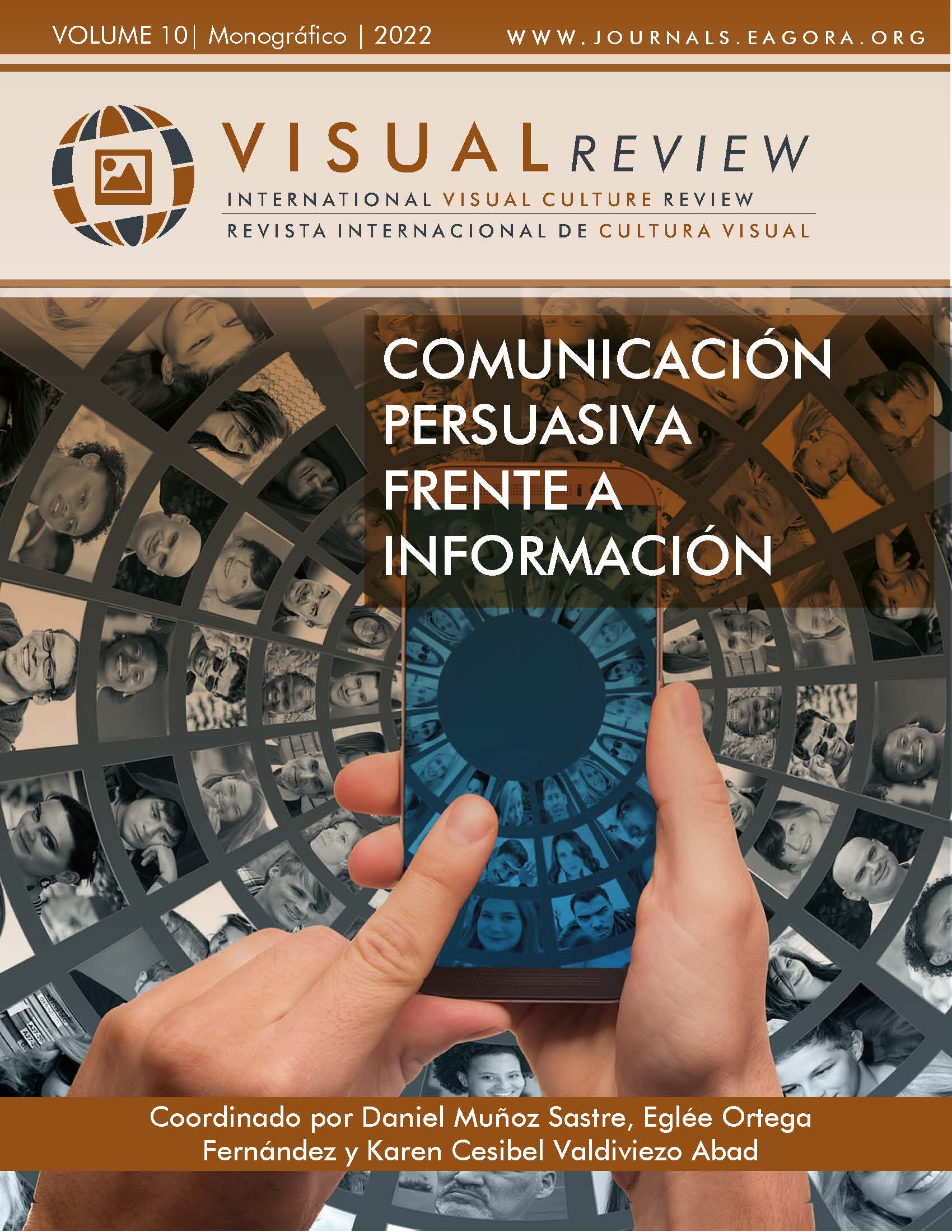Organizational models in the fact-checking media
Comparative analyisis of The Fact Checker and Maldita.es
DOI:
https://doi.org/10.37467/revvisual.v9.3562Keywords:
Misinformation, Fake News, Verification, Fact-checking, Maldita.es, The Fact Checker, Media literacyAbstract
This paper analyzes the organizational models most commonly used in media dedicated to fact-cheking, taking as a reference the classification made by Graves and Cherubini (2016). It distinguishes between the so-called Newsroom model and the NGO model, which respectively correspond to projects included in the functional structure of another media and to projects, often non-profit, that develop their activity independently. For this purpose, a comparative analysis is made of The Fact Checker and Maldita.es, two consolidated projects that exemplify the most relevant characteristics of each of these models.
Downloads
Global Statistics ℹ️
|
784
Views
|
338
Downloads
|
|
1122
Total
|
|
References
Alandete, D. (2019). Fake News: la nueva arma de destrucción masiva. Cómo se utilizan las noticias falsas y los hechos alternativos para desestabilizar la democracia. Deusto.
Campos, F. (2008). Las redes sociales trastocan los modelos de los medios de comunicación tradicionales (No. 11; (63)). https://www.redalyc.org/articulo.oa?id=819/81912006023
Desmond, R. W. (1933). Newspaper reference methods. The University of Minnesota Press.
Fole, X. (2012, 26 de septiembre). Los hechos son sagrados. El fact-checker y la importancia del periodismo [revista digital]. Fronterad. https://cutt.ly/1UGMpuP
Graves, L. y Cherubini, F. (2016). The rise of fact-checking sites in Europe. Reuters Institute Digital News Report. Reuters Institute for the Study of Journalism. https://bit.ly/3Baf5sb
Guallar, J. (2012, 22 de octubre). Comprobadores de datos o fact checkers [blog digital]. Documedios.Wordpress.Com. https://documedios.wordpress.com/2012/10/22/comprobadores-de-datos-o-fact-checkers/
Jiménez, C. (2018). Toda la verdad sobre la desinformación. Clara Jiménez. TEDxMadrid. [vídeo]. YouTube. https://www.youtube.com/watch?reload=9&v=2_xr58zYr6c
Kessler, Glenn. (2017, 1 de enero). About Fackchecker [periódico online]. The Washington Post. https://www.washingtonpost.com/politics/2019/01/07/about-fact-checker/
Kovach, B., Rosenstiel, T. Y Diéguez Rodríguez, A. (trad.). (2012). Los elementos del periodismo (1a). Santillana Ediciones Generales, S.L.
Maldita.es. (2018a, 20 de enero). Un equipo formado por miembros de Maldita.es y de laSexta gana el Editors Lab en España y pasa a la final mundial [plataforma de verificación de información]. Maldita.es. https://bit.ly/3Ooa2qR
Maldita.es. (2021a, 7 de mayo). Metodología de Maldito Bulo [plataforma de verificación de información online]. https://maldita.es/metodologia-de-maldito-bulo
Maldita.es. (2021b, 7 de mayo). Metodología de Maldito Dato [plataforma de verificación de información online]. https://maldita.es/metodologia-de-maldito-dato
Maldita.es. (2021c, 7 de mayo). Metodología de Maldita Ciencia [plataforma de verificación de información online]. https://www.maldita.es/metodologia-de-maldita-ciencia
Maldita.es. (2018a, 15 de mayo). Política de Neutralidad [plataforma de verificación de información online]. https://maldita.es/politica-de-neutralidad
Maldita.es. (2018b, 15 de mayo). Un equipo formado por miembros de Maldita.es y de laSexta gana el Editors Lab en España y pasa a la final mundial. [plataforma de verificación de información online]. https://bit.ly/3PIJgLz
Radio Huesca. (2015, 10 de marzo). «Maldita Hemeroteca» premio Porquet del Congreso de Periodismo Digital [plataforma de radio]. RadioHuesca.com. https://bit.ly/3PshXoB
Paone, M. [c_i_p2020]. (2020, 17 de mayo). Conversaciones itañolas de periodismo (en tiempos de coronavirus) [comunicación en directo con Clara Jiménez]. Instagram. https://www.instagram.com/tv/CAS2-Mrqsbu/?igshid=ngh8ycv73g0m
Redondo, M. (2018). Verificación digital para periodistas (1a). UOC, S.L.
Sanmartí, J. M. (2004). Más allá de la noticia. El periodismo interpretativo. En Redacción para periodistas: informar e interpretar. Ariel, 333-359.
Santana Leitner, A. (2013). Fundamentos para la investigación social. Alianza Editorial.
Ufarte-Ruiz, M.J., Anzera, G., y Murcia-Verdú, F.J. (2020). Plataformas independientes de fact-checking en España e Italia. Características, organización y método. Revista Mediterránea de Comunicación, 11(2), 23-39. https://www.doi.org/10.14198/MEDCOM2020.11.2.3 DOI: https://doi.org/10.14198/MEDCOM2020.11.2.3
Wilner, T. (2016, 7 de septiembre). Fail and move on: Lessons from automated fact-checking experiments [plataforma de verificación de información digital]. Poynter. https://cutt.ly/acQ2M4d
Zommer, L. (2014, septiembre). El boom del fact checking en América Latina. Aprendizajes y desafíos del caso de Chequeado [publicación en línea sobre el caso Chequeado]. Chequeando. https://bit.ly/2K56pIO
Zommer, L. (2015). “El boom del fact checking y la vuelta a las fuentes” (L. Crujia, Ed.). Periodismo disruptivo.
Downloads
Published
How to Cite
Issue
Section
License
Those authors who publish in this journal accept the following terms:
-
Authors retain copyright.
-
Authors transfer to the journal the right of first publication. The journal also owns the publishing rights.
-
All published contents are governed by an Attribution-NoDerivatives 4.0 International License.
Access the informative version and legal text of the license. By virtue of this, third parties are allowed to use what is published as long as they mention the authorship of the work and the first publication in this journal. If you transform the material, you may not distribute the modified work. -
Authors may make other independent and additional contractual arrangements for non-exclusive distribution of the version of the article published in this journal (e.g., inclusion in an institutional repository or publication in a book) as long as they clearly indicate that the work was first published in this journal.
- Authors are allowed and recommended to publish their work on the Internet (for example on institutional and personal websites), following the publication of, and referencing the journal, as this could lead to constructive exchanges and a more extensive and quick circulation of published works (see The Effect of Open Access).














